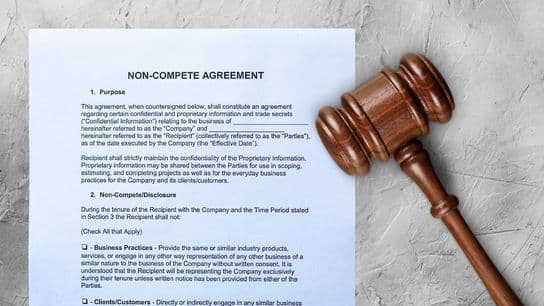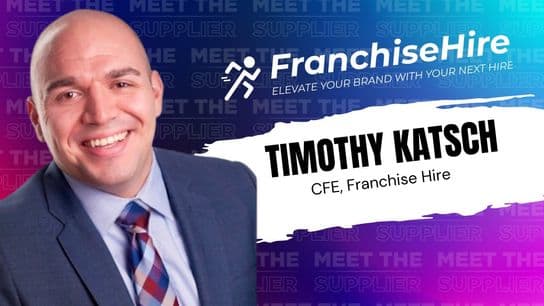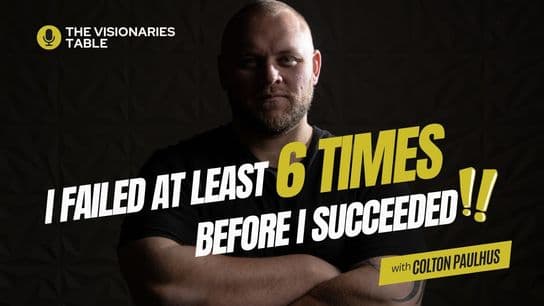Finding Strength in Specifics
How Detail-Oriented Pitches Will Lead to Greater Success
I recently wrote an article about crafting a strong local PR pitch by focusing on the three key pillars: timeliness, local interest, and the human element. However, in all forms of media pitching, I have one overarching word of advice: be specific.
Specifics are often overlooked in all forms of communication. I learned the power of specificity during college while studying improv comedy where creating a visual tapestry is vital to an audience investing in your scene. Word choice becomes crucial when you’re having conversations about things that don’t actually exist on a stage with no tangible sets or props. You aren’t simply in “a hotel room,” you’re “being suffocated by the windowless and dimly lit room in the Grand Peoria Hotel, which Yelp lists as potentially being built on an ancient Native American burial ground.”
All forms of communication, both spoken and text-based, are richer when you use proper nouns or descriptive qualifiers. How memorable would a Christmas song titled “The Reindeer” be without knowing that the reindeer is named Rudolph and he has a red nose? Now I’m intrigued. Admittedly, any type of “people eater” is intriguing, but the fact that this particular “people eater” has one eye, one horn, and – Lord help us all – can fly, is far more intriguing (and frightening).
When crafting your pitch to the media, it’s important to make sure that you are being as specific as possible and anticipate and answer any questions that may be asked by a media representative. A good exercise is to pitch a colleague first and ask them to pepper you with any questions a reporter or producer may ask.
In regards to the three pillars of local pitching, here are some ways to make sure that specificity is top of mind:
Timeliness
Make sure to dial in on exact dates and times. Don’t say that a business is “opening soon” – give the exact day when this business owner will proudly open their doors to the public.
Lay out the timeline for the narrative of your story idea. A powerful way to tell a story is to take the media representative back in time and then bring them to today. For example: “Twenty years ago, Bill Jones was sitting in a cubicle simply dreaming of being his own boss. This Saturday, Bill will finally realize that dream when his Bill’s Books opens for business.” The greatest stories are ones that develop over a long period of time – give the context to make your pitch stronger.
If an event has already taken place or you learn about a story past the most ideal timely hook, you can recapture some timeliness by using a time frame like, "within the past month," so that it pulls the timeline into something more tangible. However, always try to find a way to make it pertinent in the here-and-now. For example, if Bill opened three months earlier, frame up your pitch to be more forward-thinking – "It’s been three months since Bill Jones achieved a 20-year-long dream of business ownership with the opening of his Bill’s Books, and he’s already learned "X," and heading into the next three months, he expects "Y.""
Local Interest
Use specific names of places, people, and things that tie your subject to that geographic location. Don’t just use went to "a local high school" or "a college in the area" – name the actual high school. In many newsrooms, you may be pitching a fellow alumnus, who will have more interest due to the connection.
In your subject line, be sure to use the exact name of the county, city or town where the story idea lives. For local media pitching, establishing that the story impacts their specific audience in their backyard is key.
When describing the location of the local business you are pitching, or the home of the person whose story you’re pushing, always refer to it in terms of landmarks or cross streets. That not only allows you to present your pitch as someone with knowledge of, or connected to, the area – but will also more quickly allow the media representative to visualize it without having to look up an address.
Human Element
Make your characters stand out. Whenever I speak with a franchisee, corporate team member, or even the CEOs and founders, I like to ask questions about what makes them tick in their personal life. Hobbies, past jobs or careers, charitable organizations, even personal talents and passions all can lend themselves to creating a compelling and richer character. A business owner who also happens to have a black belt in karate, holds season tickets for the local sports team and never misses a game, or spends his or her weekends at swim meets for their multiple children on the local school’s swim team, is far more interesting than saying just simply “business owner.”
Lay out the local business owner’s motivation as part of the pitch. Are they trying to positively impact a specific problem in that community? Did they have a challenging personal event that helped grow them into who they are today? Is there a long-term plan to leave the business to family, support a local charity or provide a certain number of jobs for those in need locally?
People sell brands. Humanize your pitch as much as possible. Beyond creating a strong “main character” (typically the business owner) also look for great support characters who may become an even more compelling story. Did your business owner have a husband or wife who sacrificed for the dream? Are there employees who are getting a second chance, or a better opportunity, due to the business? Is there a specific person being helped by a charity or organization that the business owner has donated time and money to? The richer your cast of characters, the better chance that your pitch will turn into a deeper and more compelling feature.













